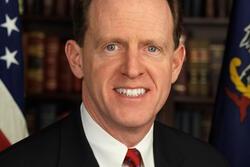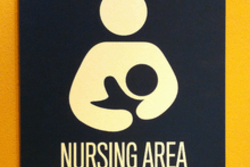We Should All Be Feminists
The past few years have seen a flurry of women celebrities publicly identifying as feminists–one memorable example was Beyonce's 2014 VMAs performance in front of a lighting display bearing the word. At the same time, many celebrities have clarified that they are not feminists, including Shailene Woodley, Kaley Cuoco, and Lady Gaga. Perhaps most notable in this group is Kim Kardashian West, who went so far as to post an essay on her website this past August explaining why she isn't a feminist.
In her essay, she writes: “For me, a feminist is someone who advocates for the civil and social rights and liberties of all people, regardless of their gender; anyone who believes that women should have the same choices and opportunities as men when it comes to education and employment, their bodies and their lifestyles.” I couldn't agree with her more. It's what comes next that really bothers me. Kardashian West explains that she doesn't identify as a feminist because she doesn't "like the idea of being labeled."
Although I knew I was a feminist long before I had the words to describe it, I try not to judge women who don't feel the same way. However, I take issue with Kardashian West's declaration because we seem to share similar views on women's rights, yet she shies away from the “feminist” label.
I am disappointed by Kardashian West’s refusal to accept feminism, mainly because of the incredible influence that she has through social media and other outlets. I don't follow her on social media or seek out articles about her, but her presence is so immense that, as a teenage girl on the internet, it's hard to escape the Kardashian name. She has 90 million followers on Instagram and almost 50 million on Twitter. She stars on a reality TV show, appears in countless tabloids and celebrity-tracking magazines, and is internationally famous. With such an influential voice, her disavowal of feminism is particularly upsetting. Kardashian West uses her wide-reaching platform to model to women and girls around the world that feminism isn’t important. It is.
Thanks to the feminist movement, I have vastly better academic and professional opportunities than my grandmothers and mother had. Although gender inequality still exists, especially across racial lines or different socioeconomic classes, the feminist movement has fought for women’s right to vote, abortion and birth control access, paid maternal leave, equal pay, and countless other issues. When Kardashian West supports these feminist ideas but refuses to call herself a feminist, she fails to recognize the efforts of countless women before her who changed our society for the better. She sends a message to her millions of followers that feminism isn’t important, that it’s possible to support other women without being a feminist, that professionally successful women don’t need the feminist movement. At a conference, she said, “...I love to support other women. But I’m not a free-the-nipple type girl.” Maybe, then, she distances herself from the feminist movement because of the stigma that comes with identifying as such.
For decades, feminists have been vilified as man-hating, bra-burning, humorless, masculine, angry, and radical. By refusing the label of "feminist" while supporting feminist ideas, Kardashian West furthers the stigma surrounding the feminist movement. She implies that it's possible to believe in feminist principles without being a feminist, thus suggesting that those women who openly identify as feminists are somehow more radical, more “out there,” more out of line than she is. Kardashian West doesn’t seem to recognize that one can fall anywhere along the spectrum, from moderate to radical, and still be a feminist. She does the entire movement, and women and men everywhere, a disservice by separating feminist ideology from the movement that vocalizes and advocates for these beliefs.
Regardless of Kardashian West’s reasons for not identifying as a feminist, it is vital for all women who believe in the core tenet of the feminist movement–gender equality–to identify as feminists. Kardashian West is just one example of many women who support feminist ideology but choose not to identify as feminists. Do they see issues with the feminist movement? Do they believe that the movement doesn’t need to exist for positive change to be made? Over the years, the feminist movement has received criticism for focusing on wealthy white women and minimizing the specific issues faced by women of color, poor women, LGBT+ women, and more. I feel welcome in the feminist movement, but other women might not feel the same. However, I still believe in the importance of the feminist movement’s existence. In the ongoing fight for gender equality, the feminist movement is necessary for uniting people with similar goals and ideas. To effect meaningful change, any person who supports feminist ideology should identify as a feminist.
Although Kim Kardashian West’s proud support for women's rights, and for other women in general, aligns her with the feminist movement, her refusal to label herself as a feminist furthers the taboo surrounding feminism in our society, and challenges the need for the feminist movement. Kardashian West might disagree, but I am convinced that, in the words of writer Chimamanda Ngozi Adichie, “we should all be feminists.”
This piece was written as part of JWA’s Rising Voices Fellowship.







